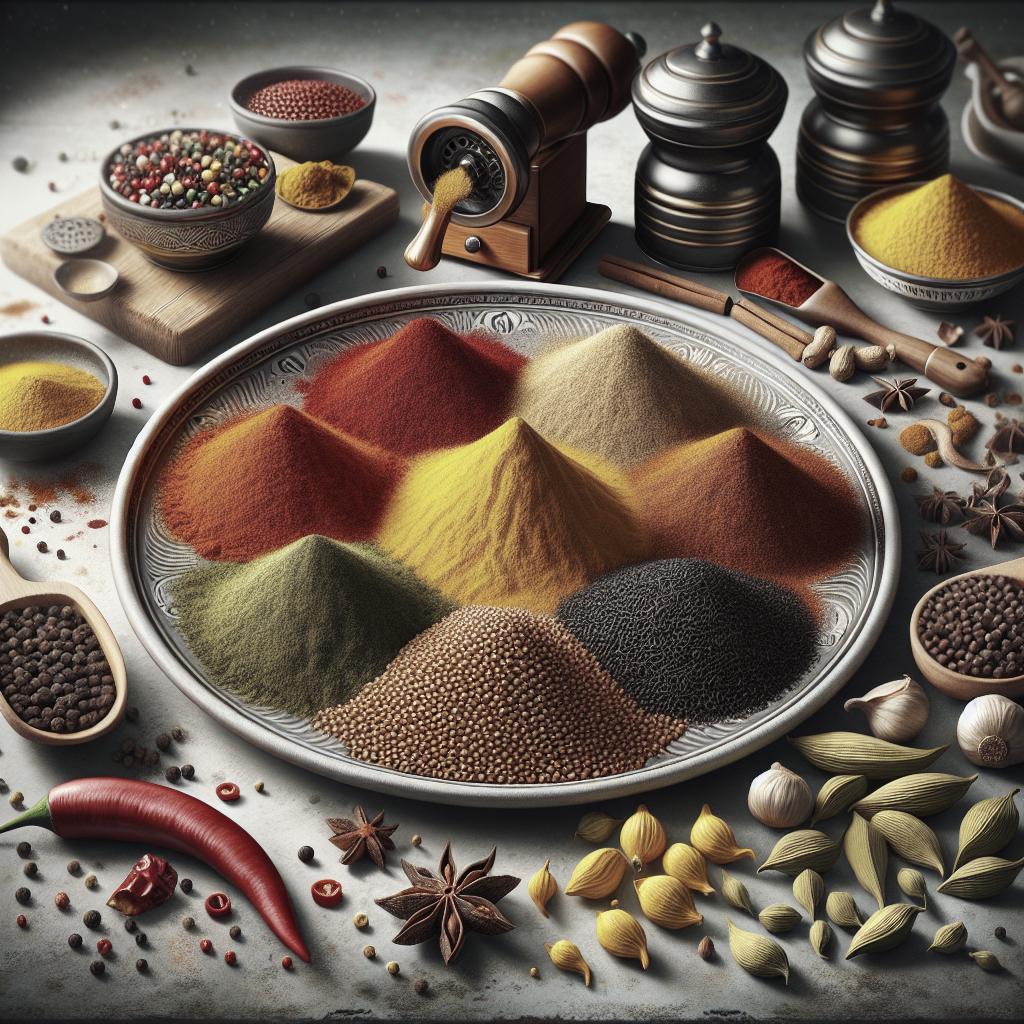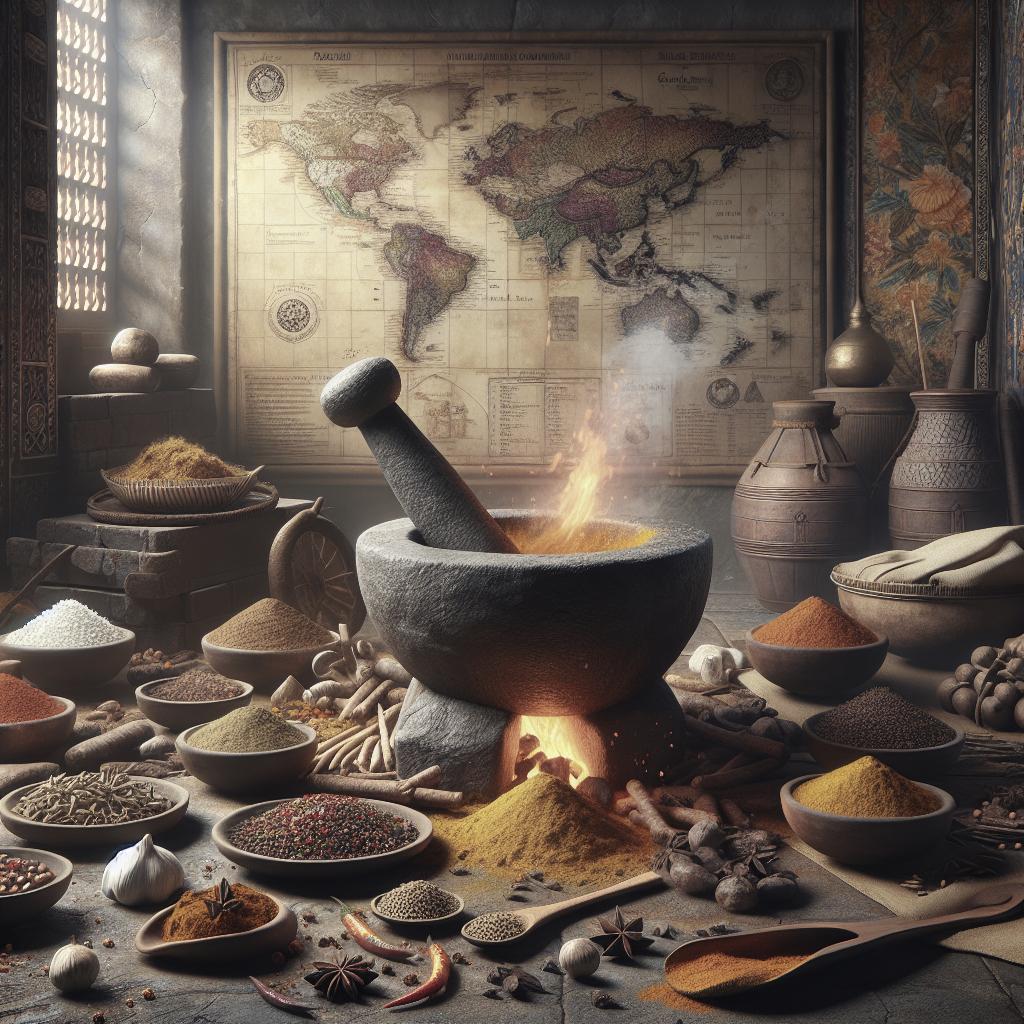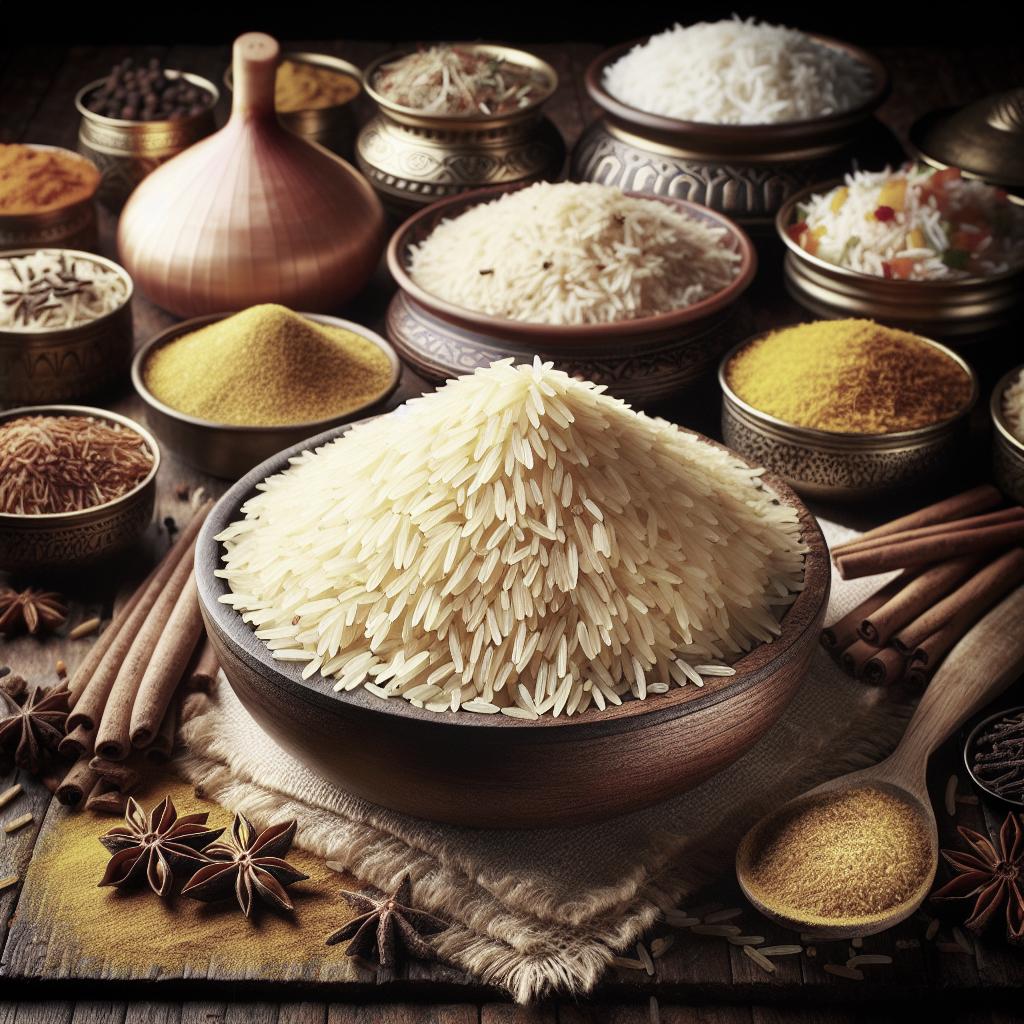“`html
Essential Spices in Indian Cuisine
Indian cuisine is a tapestry of vibrant flavors, with a culinary tradition that elevates the simple to the extraordinary using an array of spices. At its core lies the artful use of a “Masala Dabba,” or spice box, which holds the key to unlocking these aromatic wonders. This post delves into the integral spices commonly found in Indian cooking, additional flavors that complement the cuisine, and tips on sourcing and storing these spices. Understanding these elements will enrich your culinary journey, enhancing the authenticity and intensity of your home-cooked Indian dishes. From differentiating spices to knowing their longevity, this guide provides a comprehensive look into the essentials of Indian cooking.
What is a Masala Dabba?
A Masala Dabba is a quintessential fixture in Indian kitchens, serving as a mystical box of flavors that enhances nearly every dish. Typically a round, stainless steel container with multiple small compartments, it stores the staple spices integral to Indian cuisine. Its accessibility and organization allow seasoned chefs and novices alike to add complexity and depth to meals with ease.
Emblematic of the diversity in Indian dishes, the Masala Dabba is a dynamic toolkit that transforms basic ingredients into flavorful masterpieces. The idea of keeping these spices in a single container is not only practical but also symbolic of the integral role spices play in blending cuisines and cultures. The presence of a Masala Dabba signifies readiness to embrace the delicious art of Indian cooking.
What spices go in my Indian spice box
The foundation of any well-stocked Masala Dabba includes core spices essential for Indian cooking. Turmeric, with its golden yellow hue, offers earthy notes and is known for its medicinal properties. Cumin seeds bring a nutty and peppery flavor, often toasted to unlock their aromatic potential. Coriander powder adds a citrusy and slightly sweet undertone, balancing more intense flavors.
Red chili powder infuses heat and vibrant color, while garam masala, a blend of spices, offers warmth and complexity. Mustard seeds are often used at the beginning of cooking processes, providing a pungent zest. These spices form the backbone of Indian cuisine, providing a versatile set of tools from which layers of flavor can be built.
Additional Spices Used in Indian Food
Beyond the essentials in a Masala Dabba, a host of additional spices further enrich Indian cooking. Cardamom, both green and black, offers sweet and smoky nuances that pair beautifully with both desserts and savory dishes. Cloves bring warmth and depth, often used in rice dishes and curries for additional dimension.
Other notable mentions include fenugreek seeds with their slightly bitter taste, enhancing pickles and vegetable dishes. Asafoetida, albeit used sparingly, provides a unique flavor profile that complements dals and legumes. These spices are not only flavor enhancers but also carry cultural significance, echoing the rich tapestry of Indian culinary artistry.
Where to buy Indian spices?
Procuring authentic Indian spices has become easier with the expansion of global trade and online marketplaces. Local Indian grocery stores are a haven for acquiring fresh, high-quality spices often in bulk quantities, providing the best value and authenticity. These community-centric stores also offer an opportunity to explore other culinary essentials in Indian cooking.
For those seeking convenience, online platforms such as Amazon and specialized spice retailers offer a vast selection of Indian spices delivered to your doorstep. When purchasing, consider the brand, origin, and expiration date to ensure you are buying the best quality spices, guaranteeing flavor and efficacy in your cooking.
How to store Spices
Proper storage of spices is crucial to maintain their potent flavors and longevity. Spices should be stored in airtight containers in a cool, dark place away from direct sunlight and heat. This prevents loss of flavor and degradation due to exposure to air and moisture.
Glass jars or containers with tight-fitting lids are ideal, as they do not absorb the odors of spices, preserving their distinct aromas. Additionally, for ground spices, minimal exposure to air is key, while whole spices have a longer shelf life and are better for longer storage terms, allowing you to grind them as needed.
Do spices expire?
While spices do not spoil in the traditional sense, they do lose their potency and flavor over time. Whole spices generally last longer, maintaining their aroma for up to four years when stored properly. Ground spices typically have a shelf life of two to three years, during which their flavor and color may diminish if exposed to unfavorable conditions.
It is essential to periodically assess the freshness of your spices; a notable loss in aroma or color is a sign that they may be past their prime. To ensure the best results in your cooking, consider purchasing spices in smaller quantities, replenishing them as needed to maintain their vibrant flavors.
Filed Under
Indian Spices, Indian Cuisine, Cooking Tips, Spice Storage
More Indian Cooking Basics 101
Exploring Indian cooking requires a grasp of its foundational techniques as much as its beloved spices. Learning the art of tempering, known as ‘tadka,’ which involves cooking spices in hot oil, is paramount. This process intensifies flavors and is a hallmark of many Indian dishes.
Understanding the balance of flavors—sweet, sour, spicy, and salty—is another essential aspect of mastering Indian cuisine. As you delve deeper into cooking, experimenting with these flavors, along with your newfound knowledge of spices, will empower you to create authentic and exciting Indian meals with confidence.
| Topic | Description |
|---|---|
| What is a Masala Dabba? | An essential spice box in Indian cooking. |
| What spices go in my Indian spice box | Includes turmeric, cumin, coriander, red chili powder, garam masala, and mustard seeds. |
| Additional Spices Used in Indian Food | Cardamom, cloves, fenugreek seeds, and asafoetida |
| Where to buy Indian spices? | Local grocery stores and online platforms like Amazon. |
| How to store Spices | Store in airtight containers in a cool, dark place. |
| Do spices expire? | Spices lose potency over time; whole spices last longer. |
“`


